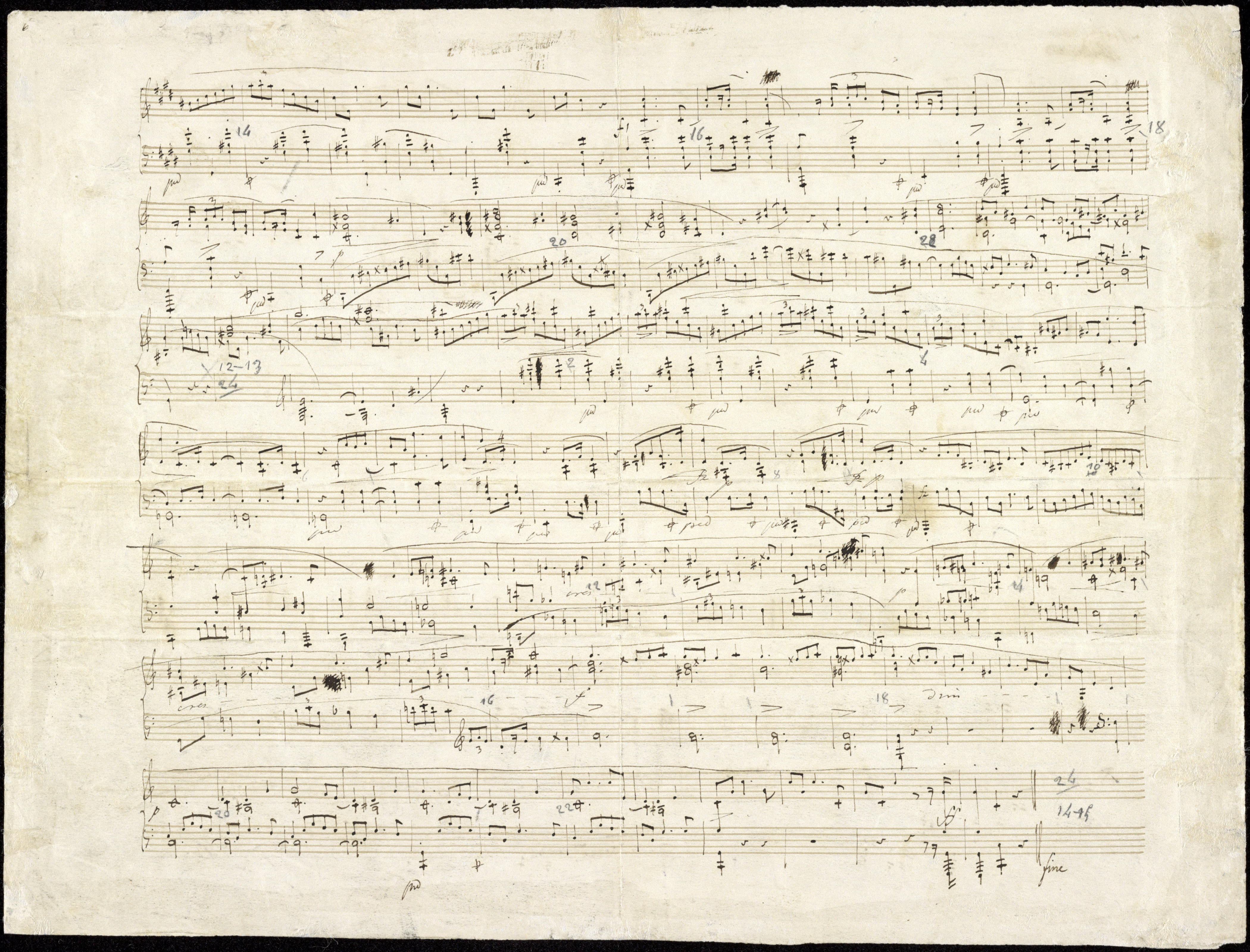




|
Upper part, notation in AF |
|

|
Upper part, notation in FE |
|

|
Upper part, notation in GE |
|

|
Upper part, notation in EE |
In b. 134 and 136, misinterpretation of the Chopinesque notation of the stems, which he would always write on the right-hand side of the noteheads, resulted first in an incomprehensible notation of FE and consequently in the totally erroneous notation of EE. According to us, the scenario could have been as follows:
- Original notation:
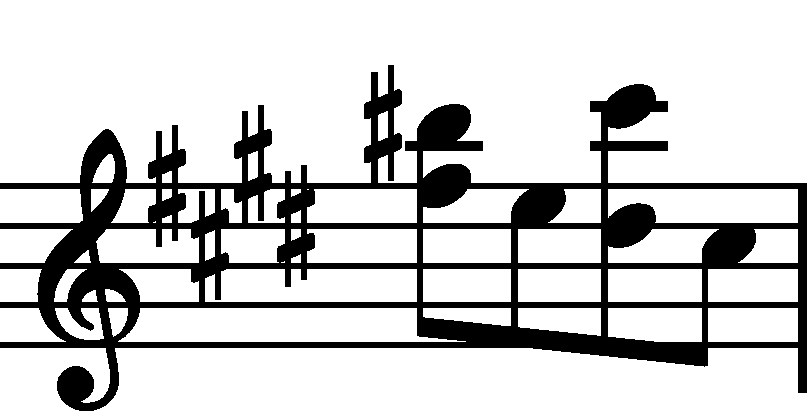 ;
; - Improved notation of AF:
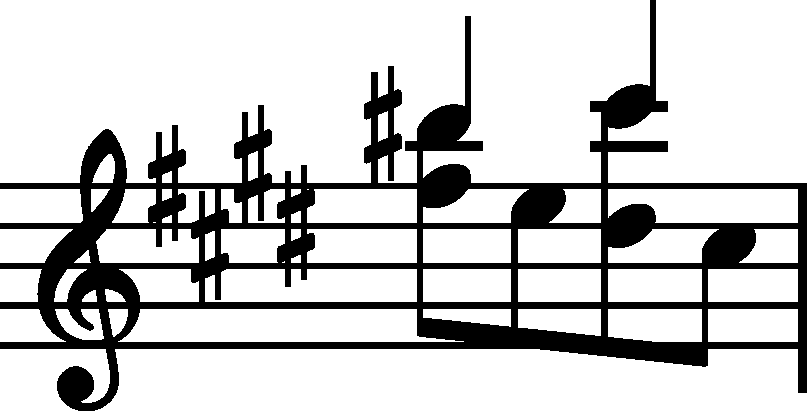 ;
; - The same in the Chopinesque notation:
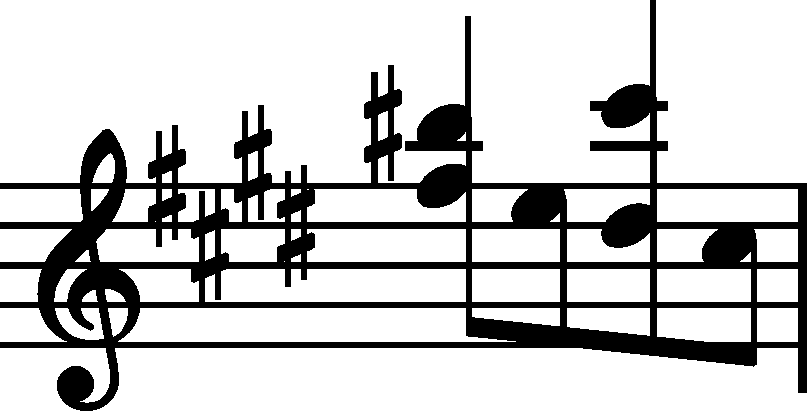 ;
; - Supposed original version of FE:
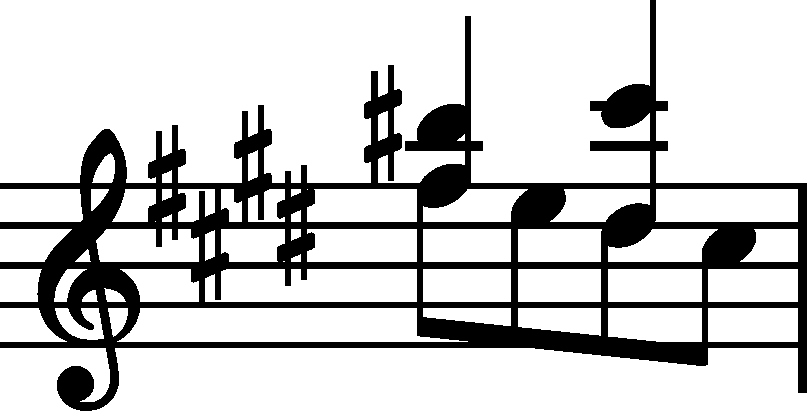 . Graphically, such an interpretation is closest to the notation of AF;
. Graphically, such an interpretation is closest to the notation of AF; - In the above version it is also the bottom notes of the dyads that are unnecessarily prolonged; attempts were made to correct it, perhaps on Chopin's command:
 . However, the notes were corrected inaccurately – stems were added on the correct side (left), yet the bottom fragments of the stems on the right-hand side were not removed, which was technically much more difficult;
. However, the notes were corrected inaccurately – stems were added on the correct side (left), yet the bottom fragments of the stems on the right-hand side were not removed, which was technically much more difficult; - The version of the finished FE is so illogical and unclear that EE made an attempt to discover its hidden meaning by developing a formally correct notation, yet disregarding piano realities and logical voice leading:
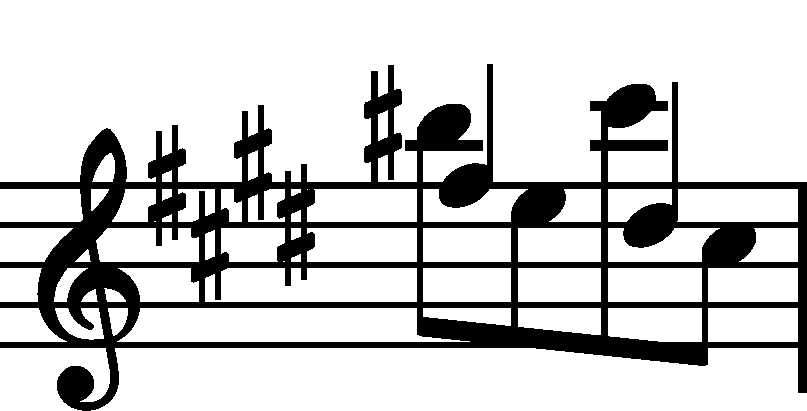 .
.
In the main text we give the simplest and probably latest notation introduced by Chopin in [AG] (→GE).
Similarly in b. 138-140.
Compare the passage in the sources »
category imprint: Differences between sources; Corrections & alterations; Source & stylistic information
issues: EE revisions, Inaccuracies in FE, Corrections in A, Errors resulting from corrections, FE revisions, Inaccuracies in A, Partial corrections
notation: Rhythm

